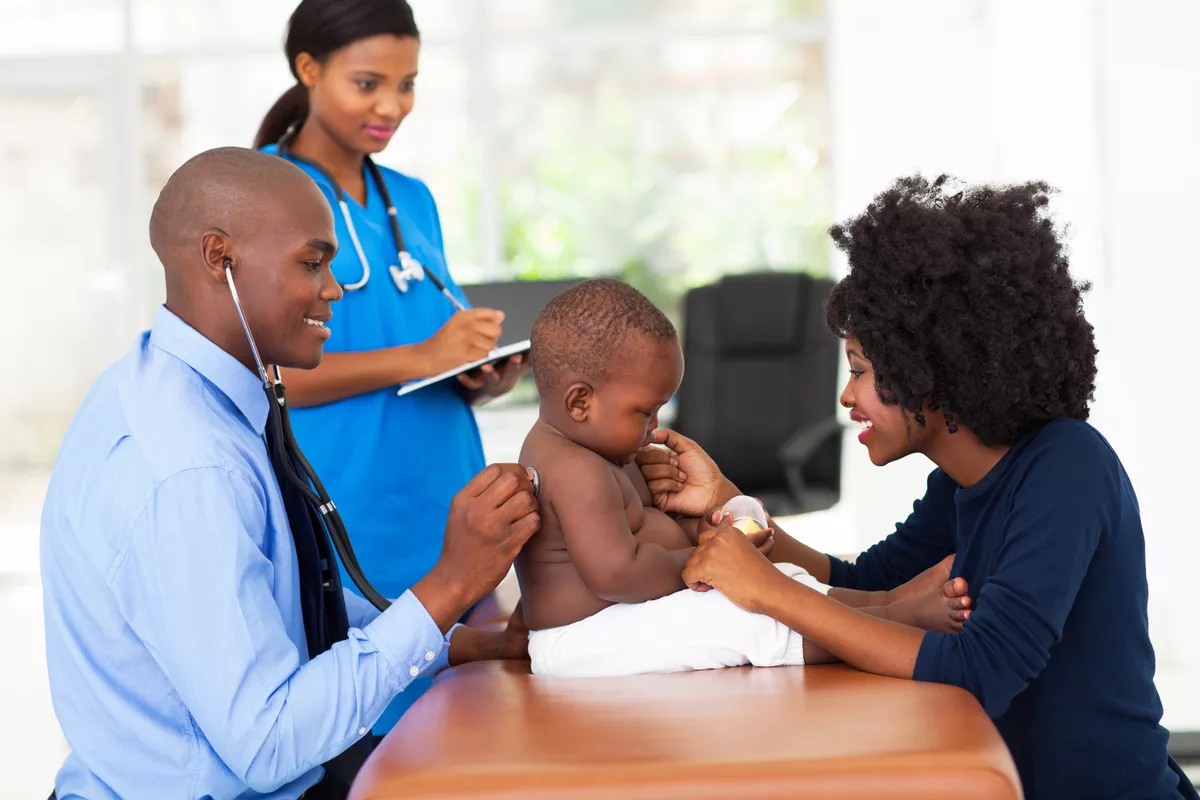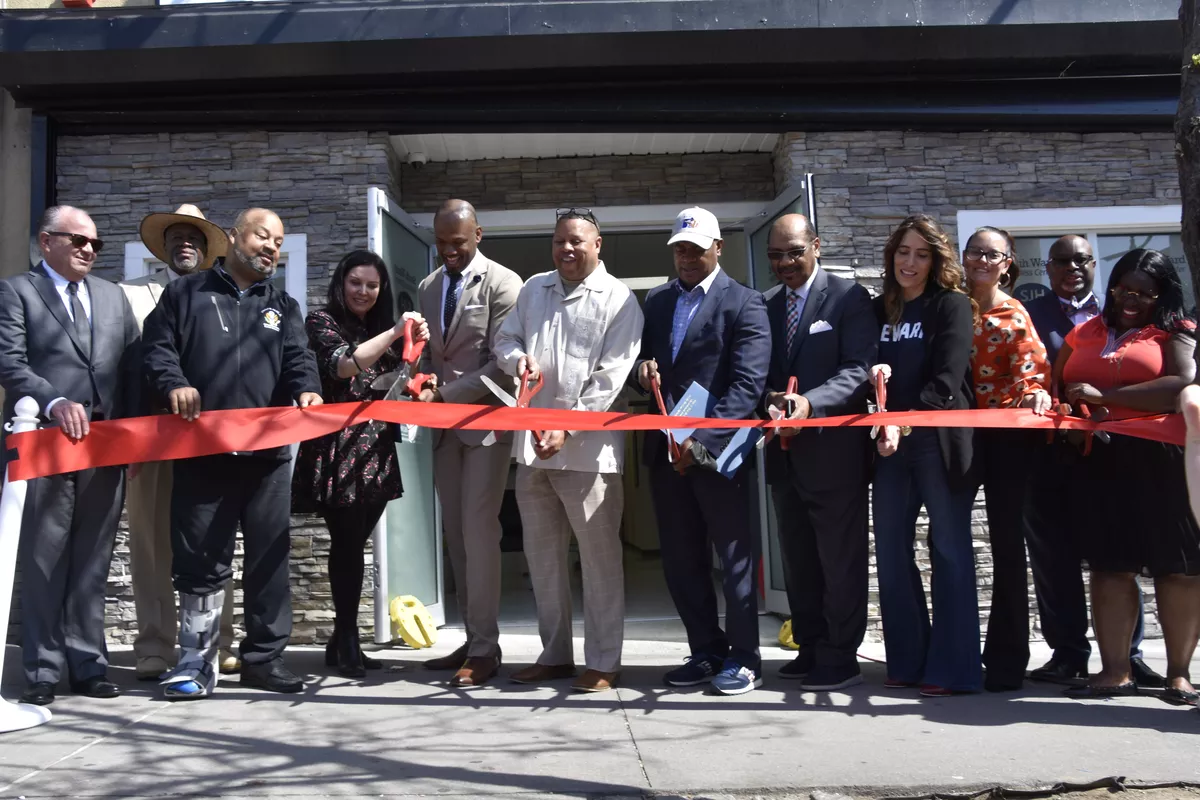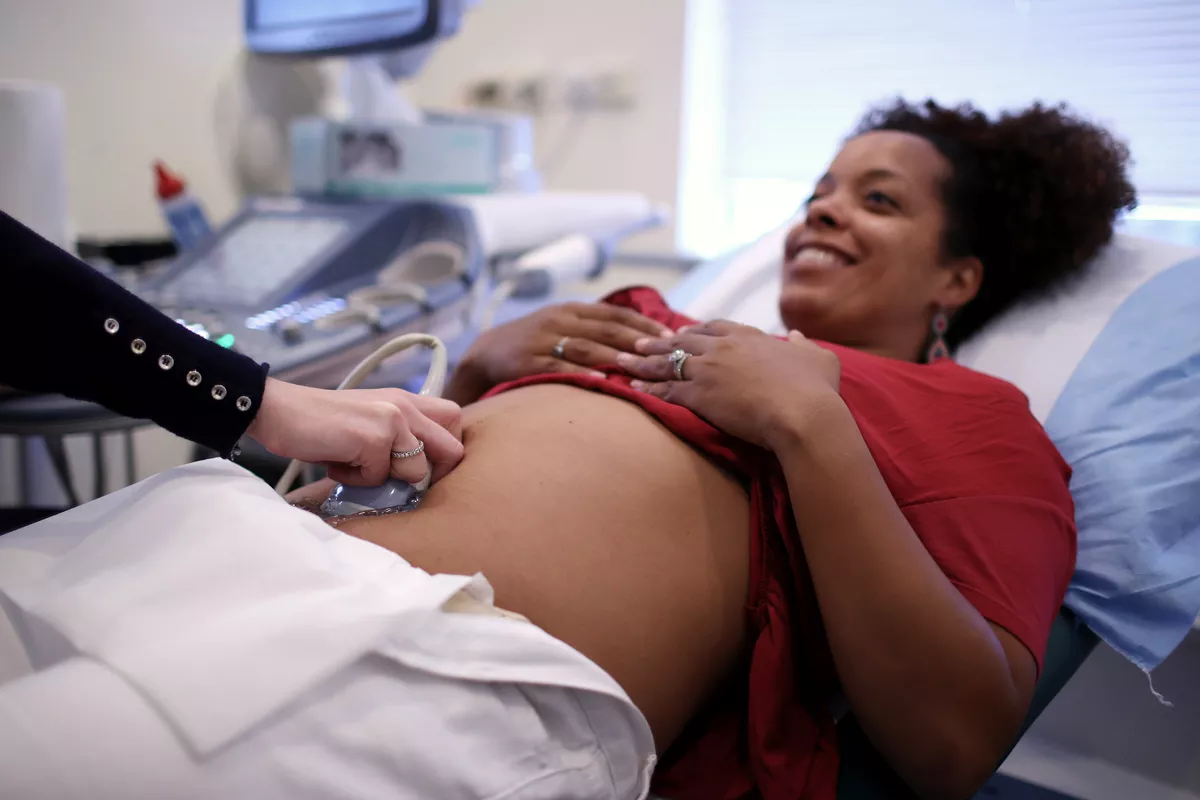👋 Welcome to Starting Early. Every other week, we spotlight new reports, useful news, engaging interviews with people doing important work, and interesting takes on maternal health and early childhood development issues.
Mothers are caregivers, protectors, and nurturers. As we celebrate Mother’s Day this Sunday, we should recognize mothers’ own needs for care, protection, and nurturing. With poor maternal health outcomes compared to other high-income countries, the United States has a lot of work to do to better support the health needs of moms – especially those in families that struggle to make ends meet and mothers of color.
In this issue, we spotlight Federally Qualified Health Centers (FQHCs) and the opening of the new South Ward Wellness Center! FQHCs offer much-needed help at the community level for new and expectant mothers and their children by providing free or low-cost services regardless of clients’ health insurance coverage. In 2020, practitioners working in these Centers provided prenatal care to 551,990 patients and performed 168,323 deliveries. Additionally, health centers provide such preventive services as OB-GYN, well-child visits, and child screenings for lead.
Read on and click the links to go deeper.
1 big thing: Federally Qualified Health Centers make care easier to find

What are FQHCs?
Federally Qualified Health Centers (FQHCs) – including community-based, nonprofit, and public organizations – were authorized more than 50 years ago, as part of President Lyndon B. Johnson’s War on Poverty, to provide affordable primary, preventive, and coordinated healthcare to people who might not otherwise receive care, regardless of ability to pay.
Today, nearly 1,400 grantees operate approximately 14,000 sites, 136 of which are in New Jersey. They provide medical, dental, pharmaceutical, behavioral, and other care to nearly 30 million patients a year, including:
- A third of people living in poverty in the United States
- 1 out of every 7 members of racial/ethnic minorities
- 1 out of every 8 children
Children under 18 make up 28% of FQHC patients and the number is rising fast. The results are impressive, including a 14% lower rate of low birth weight than the US average and nearly 35% lower costs per child compared to other providers.
FQHCs also provide enabling services such as transportation, health education, and language translation.
How are FQHCs funded?
FQHCs offer sliding-scale rates for patient services through grants from the federal Health Center Program and state-based programs. FQHCs are also often reimbursed by Medicaid per patient, rather than billing for each service.
Some centers receive funding to serve such specific groups as those needing school-based healthcare, public housing residents, migrants, agricultural employees, veterans, and persons experiencing homelessness.
FQHCs reduce health inequity and save money
Decades of evidence show coordinated, integrated, patient-centric care improves physical and mental health while increasing access to community-based services.
Though FQHC patients suffer from chronic conditions at more than 30% higher rates than the general population — including hypertension, high cholesterol, asthma, and diabetes — FQHC patients report higher satisfaction of care while being more likely to receive routine checkups, vaccinations, and annual preventive screenings.
FQHCs are well positioned to tackle costly, significant public health issues, including substance use disorders, mental illness, and homelessness. During the COVID-19 pandemic, FQHCs are largely responsible for the increase in community vaccination and testing programs, behavioral health services, and tele-healthcare.
Wow!: Overall, health centers provide care at 41% lower cost than equivalent care provided elsewhere, saving the US healthcare system more than $20 billion annually. 💰
To find health centers near you, visit https://findahealthcenter.hrsa.gov/.
2. Increasing Newark moms’ access to healthcare

Founded by the Black Mamas Matter Alliance, Black Maternal Health Week takes place every year April 11 – 17. Events and celebrations raise awareness of Black maternal health disparities in the US and amplify solutions. This year’s Black Maternal Health week was especially important for residents of the South Ward in Newark, NJ. On April 14, Saint James Health and the South Ward Promise Neighborhood, an initiative of BRICK Education Network, opened the South Ward Wellness Center, an FQHC whose main focus will be on expectant mothers and children.
The center will provide the predominantly-Black community with services including mental healthcare, adult medicine, pediatrics, and prenatal care. And the center will connect patients to wraparound resources and programs offered through the South Ward Promise Neighborhood. One such program is South Ward Healthy Beginnings, aimed at improving health and education for pregnant women, new mothers, infants, and children.
To learn more about the South Ward Wellness Center, read this ROI-NJ article.
3. Helping South Ward families thrive

We had the pleasure of sitting down with some of the leaders responsible for making the new South Ward Wellness Center a reality – Nicole Fields, Chief Executive Officer at Saint James Health; Jasmine Spencer, Director of South Ward Healthy Beginnings; and Nancy Gottesman, Director of Development for South Ward Promise Neighborhood.
Providing holistic support for South Ward families: “We listened to the community that we serve and recognized early on that moms and babies didn’t have a medical home in the heart of the South Ward,” Jasmine shares. “That’s where Nicole and Saint James come in.
They’re providing those in-community, in-house medical services and if there’s an additional need – a food insecurity, a housing issue – Promise Neighborhood has 30-plus partners who provide a lot of those wraparound services. Additionally, through our Promise Navigation, we deliver direct services tailored to individual needs. Our community health workers — we call them navigators — work one-on-one with families to move from instability to stability to thriving.”
Building trust in the community: “When we open a site, we make sure the funding is ongoing,” Nicole explains. “We are not going to be in a community for a couple of years and then leave. Groups come into Newark and start providing services and then all of a sudden lose funding and are unable to continue. You completely lose the trust of the community. We want to make sure everyone knows we’re not going anywhere.”
Putting families first: “We don’t profess to be the experts. We make lots of suggestions, but at the end of the day parents need to do what they feel is best for their children,” Jasmine shares. “We always go in with a lens of humility, a service mindset, and just being present. We want them to know that they’re not in it alone. We talk to moms and their families the way we would want to be talked to, respectfully. Often, women of color aren’t heard in medical spaces. Having someone like a doula or a community health worker there as an advocate on behalf of a mom adds a level of security, knowing that you’re in good hands.”
4. One smile to go: Community-centered vaccine outreach in Newark 😊
After an initial surge in COVID-19 vaccinations following their rollout, communities across the US face stagnating vaccination rates despite only about 65% of the US population being fully vaccinated. The vaccination rate for eligible young people is especially low. As of April 20, 2022, only 28% of 5- to 11-year-olds and 58% of 12- to 17-year-olds were fully vaccinated. Despite these challenges, Newark managed to nearly double its youth vaccination rate thanks to coordinated outreach efforts.
By July 2021, only 30% of Newark children aged 12 – 17 had received at least one dose of the COVID-19 vaccine – well below the statewide and national averages. Additionally, Black neighborhoods had some of the lowest youth vaccination rates in the city.
To combat the low youth vaccination rate, the city centered the needs of the community by:
- Launching the “Vaccine for Teens” initiative in partnership with Saint James Health, RWJBarnabas Health, and other stakeholders to distribute the vaccine in public schools
- Hosting pop-up clinics at summer festivals, back-to-school events, and other community gatherings
- Using trained community volunteers to explain the vaccination process and answer residents’ questions
The efforts paid off: By consistently showing up where community members are, like at bus stops and schools, volunteers helped Newark’s youth vaccination rate to nearly double from 30% in July 2021 to 55% in September 2021.
And ice cream helped: During Saint James Health’s summer vaccination events, residents were treated with free ice cream for all. Saint James CEO Nicole Fields shares that after attending a couple of events and speaking with Saint James staff, those initially hesitant eventually agreed to get vaccinated. 🍦🍧🍨
Read more about the city’s efforts in this Chalkbeat article
5. The roundup
In celebration of Mother’s Day, here are some inspiring stories:
- A mom supports NICU families: A WKYC article details the heartwarming story of Shirley “Jewel” Smith and her husband, former NBA basketball player J.R. Smith. After their daughter was born 5 months premature, Shirley founded the New Jersey-based nonprofit My Kota Bear, which has supported over 200 families with babies in Neonatal Intensive Care Units. 🎉
- Offering free childcare to moms: Along the Way, a Pennsylvania nonprofit, sends childcare workers at no cost to help single moms working nights or weekends. As one mother shared in the Philadelphia Inquirer, “I don’t know how I’d survive without it. Sometimes, I just break down and cry in gratitude.” ❤️
- Improving Black maternal health in North Carolina: Black women in the US are almost three times more likely to die from pregnancy-related complications than white women. The Alliance of Black Doulas for Black Mamas fights this racial disparity by training Black doulas to support Black women throughout their pregnancies. Read more here.
- Supporting inclusive birthing experiences: The Philly Queer Doula Collective peer support group helps pregnant LGBTQ people navigate the healthcare system. The group created a resource list of about 50 queer and trans-competent doulas, lactation specialists, and other health professionals to better support queer and trans birthing people. 🌈
Promoting change for working moms: Founded by Gayatri Agnew and held the day after Mother’s Day, Mother’s Monday is a day to honor working moms and advocate for ways to improve the current state of working motherhood. Join this year’s virtual event to celebrate.🎆
